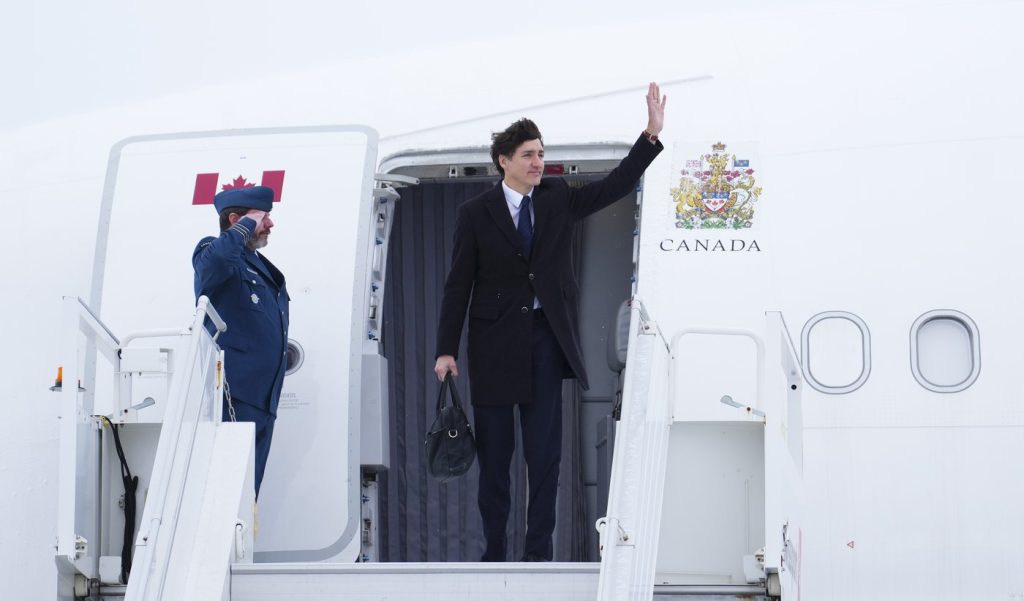OTTAWA – Prime Minister Justin Trudeau is heading to London this morning, preparing for a European defense summit scheduled for tomorrow, focusing on the establishment of lasting peace in Ukraine. The summit, which was announced earlier this week, will include European leaders but gains additional significance with the participation of Ukrainian President Volodymyr Zelenskyy, who recently had a contentious meeting with U.S. President Donald Trump at the White House.
During the meeting, Kyiv and Washington were anticipated to finalize a vital-minerals agreement as part of efforts to conclude Ukraine's ongoing conflict with Russia. However, Trump showed overt disdain for Zelenskyy when the latter insisted that the deal should encompass security guarantees from the U.S. This behavior has stirred unease in Europe, prompting leaders to bolster their commitments to Ukraine's defense as part of what they see as essential to European security interests.
Despite Canada's active engagement in Ukraine's defense, it was notably absent from the list of countries invited to the Sunday summit. British Prime Minister Keir Starmer discussed the event during his recent visit to Washington to meet with Trump. This absence highlights a shift in global alliances, as researchers like Steve Hewitt, who teaches Canadian studies at the University of Birmingham, point out that Trudeau's attendance at the summit sends a political message regarding Ottawa's preferred partnerships.
Hewitt describes the summit as laden with significance, particularly in the context of the ongoing challenges within transatlantic relations. He notes that Trudeau and various European leaders have expressed support for Zelenskyy via social media, signaling a deliberate positioning that contrasts sharply with Trump's stance. Hewitt emphasizes the unique nature of the current geopolitical landscape, suggesting that there hasn't been an equivalent situation in the last century, certainly not since the post-World War II era and the Cold War.
The historical context draws parallels between the United Kingdom's Brexit decision and Canada’s evolving position, suggesting both nations feel somewhat unanchored in their traditional reliance on the United States for defense and economic security. Starmer aims to position the U.K. as a diplomatic bridge between the U.S. and the European Union, an effort that could risk alienating both sides, according to Hewitt.
As part of the summit preparations, Starmer is scheduled to meet with Zelenskyy prior to the talks, extending invitations to leaders from NATO, the European Commission, and over a dozen countries, including France, Germany, Denmark, Italy, and the Netherlands. The diplomatic landscape is further complicated by Starmer’s comments during his Washington visit, where he refrained from challenging Trump’s provocative remarks regarding the annexation of Canada. This response has been perceived as insensitive by many Canadians, who expect a stronger defense of their sovereignty from a close ally.
Hewitt characterizes Starmer's lack of pushback as disrespectful to Canadians, who are seeking the U.K. as a supportive partner. He expresses frustration over the low media coverage of this incident in Britain, despite the strong historical ties that should foster a concern for Canada’s wellbeing. There seems to be a prevailing sentiment in the U.K. that disregards the complexities of Canada-U.S. relations, with a notable focus on American interests dominating discussions.
In conclusion, as Trudeau embarks on this significant trip to the U.K., the ramifications for Canada and its relationship with both the U.S. and emerging European partnerships will be closely monitored. With the evolving security landscape in Europe following Russia’s actions, the strategic positioning of Canada in defense matters continues to be of paramount importance, as illustrated by Trudeau’s decision to participate in this pivotal summit.










